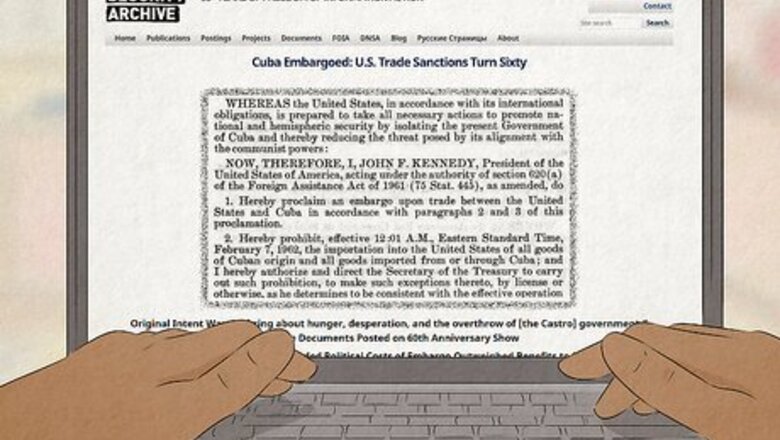
views
Why are Cuban cigars illegal in the US?
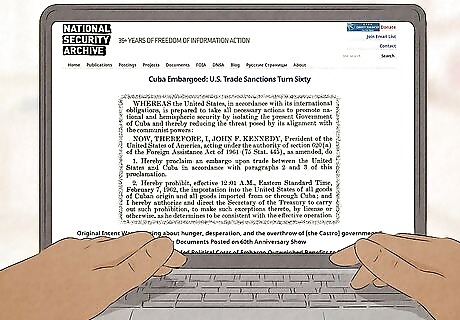
JFK banned all Cuban imports during the Cold War. In 1959, Fidel Castro overthrew the US-backed dictator Fulgencio Batista. Castro quickly aligned Cuba with Russia, whom the US was actively in a Cold War with, which soured relations between Cuba and the US. By 1962, John F. Kennedy decided to impose economic, commercial, and financial blockades against Cuba. This made it illegal for US citizens to buy Cuban goods—including cigars. This ban is still in place today. Fun fact: John F. Kennedy didn’t immediately sign the ban on Cuban goods. First, he sent his head of press, Pierre Salinger, out to get him 1,000 Cuban cigars for his personal stash. This embargo is a huge reason why Cuba famously relies on cars made before 1962. If you visit Havana today, you won’t see any modern American vehicles!
What are the penalties for buying Cuban cigars?
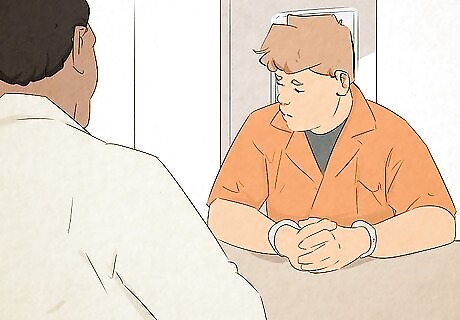
You’ll face fines and up to 10 years in prison for importing Cuban cigars. There are no penalties for buying Cuban cigars outside of the US, but the penalties are pretty stiff if you try to bring them into the US or buy them in the States. It can cost you up to $250,000 in fees and fines, and up to 10 years in prison—just for a few cigars. These days, the US government rarely pursues individuals over this. They’re more concerned about businesses and criminal organizations smuggling large numbers of Cuban cigars into the country.
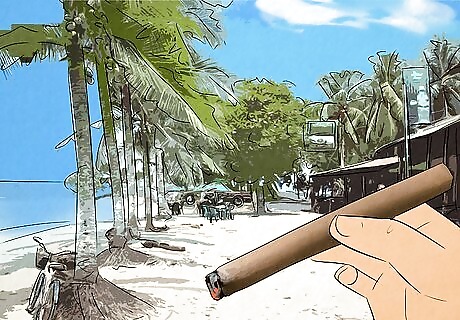
There are no penalties for personal consumption outside the US. Currently, US citizens can buy Cuban cigars in Cuba, Finland, Spain, and other countries without penalties. It used to be illegal for US citizens to buy Cuban cigars anywhere outside of the US, but those restrictions have recently changed. It’s okay to consume any Cuban goods so long as you aren’t in the US. Travelling to Cuba for tourist reasons is still technically prohibited, but you can apply for a license to visit Cuba if you have a special reason, such as family visits, journalistic activity, public performances, or educational activities.
Will Cuban cigars always be illegal in the US?
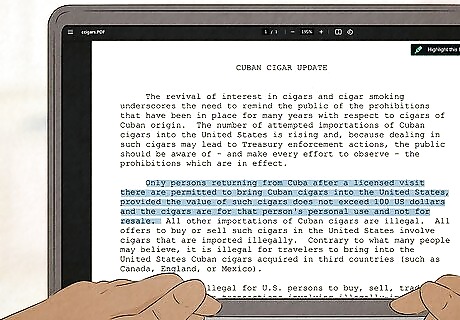
It's likely that Cuban cigars will eventually be legal. Restrictions on Cuban imports were relaxed during President Obama’s tenure, but those changes were reversed a few years later. Still, it’s a good signal that there’s growing support among US citizens to reopen trade with Cuba. The UN has recently voted to condemn the US sanctions too, so there’s global support to end the blockade. All things considered, it seems like it’s only a matter of time until Cuba and the US start doing business again. A lot of the pressure the US applied to Cuba was to accelerate the fall of the Soviet Union. Because the USSR doesn’t exist anymore, most historians and academics believe the US will eventually relax or reverse the sanctions.
Why are Cuban cigars so special?

The climate of Cuba makes its tobacco highly flavorful. The same way that wine from California, France, and Australia all taste different because of the soil and climate, Cuban tobacco is completely unique from American, Brazilian, and Turkish tobacco. Blind studies, tobacco experts, and researchers all agree that Cuban cigars are among the most flavorful, dynamic, and rich cigars in the world. Cuba has the perfect humidity conditions, precipitation, and soil acidity to cultivate quality tobacco plants quickly and on a mass scale. Beyond the perfect climate, Cuban tobacco farmers (like NY pizza chefs and Mexican tequila distillers) take extreme pride in cultivating and perfecting the world’s best tobacco. That kind of effort is reflected in the product. If you aren’t a cigar aficionado, you’re probably not going to notice much of a difference between Cuban tobacco and its competitors.
Legal Alternatives to Cuban Cigars
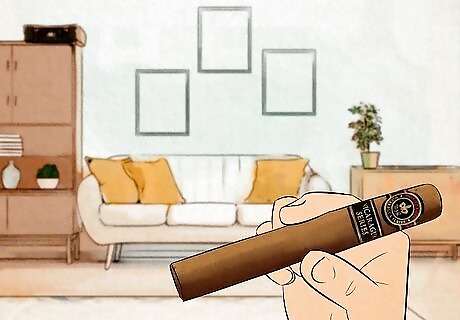
If you want good alternatives, seek out Dominican or Nicaraguan cigars. When the US banned Cuban exports and imports, a lot of Cuban cigar manufacturers fled the country. Since the climate in the nearby region is similar, a lot of “parallel brands” exist. These are cigar manufacturers who started in Cuba and now export out of a nearby country. Look for cigars from the Dominican Republic and Nicaragua (and to a lesser extent Haiti and Honduras) for a high-quality smoking experience that’s comparable to a Cuban. Montecristo, H. Upmann, Romeo Y Julieta, Hoyo De Monterrey, and Partagás are all popular, high-quality brands that originated in Cuba and operate elsewhere (making them legal to purchase).













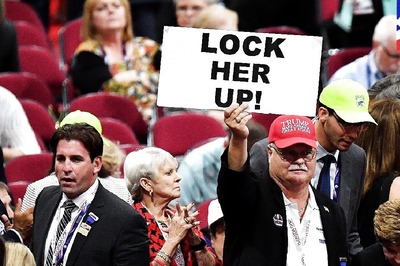




Comments
0 comment